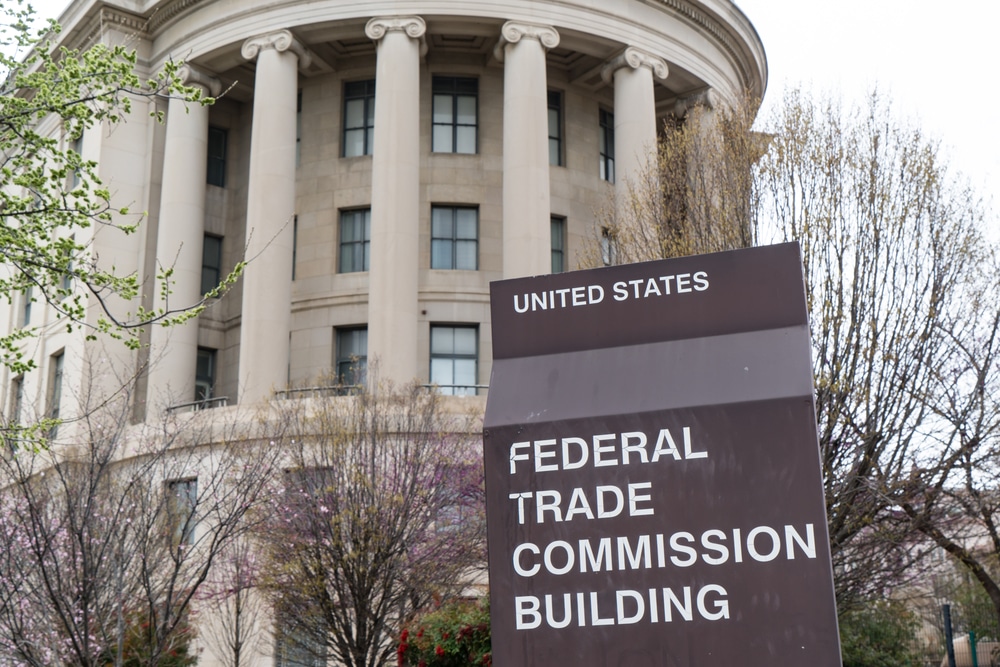A common way politicians and government officials bury bad or controversial news is to release it at a time when it is guaranteed to receive limited attention, such as 4:45 p.m. on a Friday or right before a holiday. The Federal Trade Commission (FTC) and the Department of Justice pulled this trick when they unveiled the final version of their new merger guidelines on December 18, when those who had not yet started their Christmas vacations were focusing on the ongoing negotiations of a border security/Ukraine funding deal.
The finished guidelines are largely the same as the draft issued in July, and there is no doubt the agencies wanted to minimize the attention they would receive from the media and Congress. For one thing, the guidance disregards the consumer welfare standard that has dominated antitrust policy since the 1980s in order to expand government antitrust prosecutions against successful businesses. The guidelines also lower the score a market needs on the Herfindahl-Hirschman Index, a computational tool used to measure market concentration and the amount of competition with a specific industry.
This guidance “suggests” that the FTC and Justice Department ought to give more scrutiny to mergers and acquisitions that would increase this score by 100 points or more if the two companies have at least a 30% combined market share. This will increase the number of antitrust cases filed by the already hyper-litigious FTC and Justice Department. Specifically, it will allow FTC Chair Lina Khan to double down on her efforts to stop Big Tech companies like META (parent company of Facebook and Instagram) from acquiring smaller social media companies, even though the potential of a big payday from a merger with a big company helps small tech startups attract investors.
The new guidelines ignore the fact that some businesses may be better able to serve consumers by taking advantage of economies of scale through mergers and/or acquisitions. Federal bureaucrats cannot judge whether a business is too big; that can only be determined by how the company fares in the marketplace. Khan and Department of Justice Antitrust Head Johnathan Kanter are both leaders of the neo-Brandeisian (or “hipster Brandeisian”) movement, which believes antitrust should be used to punish business for the “crime” of being big. Khan in particular believes that Big Tech companies like META, Amazon, and Google are impervious to market forces and even present a threat to democracy.
Khan and her allies ignore the fact that Big Tech companies like META are losing market share to new companies like Tik-Tok, which appeal to young people. Facebook was once the dominant social media platform amongst young people (in fact for the first few years of its existence Facebook’s membership was limited to college students), but is now viewed by many as a site for old people. The large social media platforms are losing conservative users because of the company’s compliance with government requests that they censor certain news and opinions.
The new merger guidelines ignore the fact that in a free market, even the largest and seemingly most powerful corporations can only maintain their power as long as they please consumers. History is full of examples of once supposedly invulnerable companies that fell as new competitaors that better served consumers entered the marketplace. For example, twenty years ago most observers expected MySpace to remain the dominant social media platform for years. No one seriously expected the company to become displaced by a site that started as a joke in a Harvard dorm room.
Some commentators have pointed out that there is nothing in law requiring federal courts to follow the guidelines. And the fact that they represent a radical departure from the past 40 years of antitrust policy may give courts an incentive to ignore them. It is also possible that the recommendations will face pushback from professional staff, especially given Khan’s proclivity to ignore the recommendations of agency professionals in favor of left-wing ideologues.
The courts and professional staff would be doing President Joe Biden a favor by disregarding this guidance, which are a blueprint for how the FTC and the Justice Department can cripple successful businesses, increase unemployment, and decrease the number of products available to consumers, all while raising prices and helping foreign-owned tech companies outcompete American businesses. No wonder the FTC and Justice Department released this guidance when it was guaranteed to receive minimal attention from the press, the public, and Congress.







